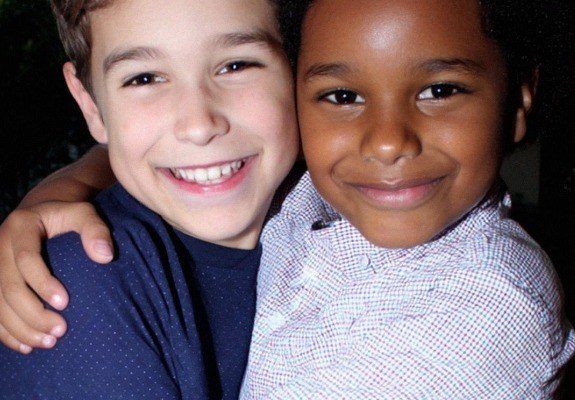The night my twelve-year-old came home from his best friend’s funeral, our apartment went silent in a way I’d never heard before. Caleb didn’t drop his backpack or ask what was for dinner. He slipped into his room, shut the door, and sat for hours with Louis’s old baseball glove pressed to his chest, as if it were the last warm thread connecting them. That’s when I knew this wasn’t a sadness that would pass on its own. It was going to steer our summer.
Caleb and Louis had been a matched set since kindergarten—Mario and Luigi on Halloween, Little League teammates, co-architects of Minecraft worlds so detailed they needed maps. Cancer took Louis fast, and left a crater in my son. Therapy gave him a foothold—he slept, he ate—but grief doesn’t move in straight lines. Some days he laughed; others felt airless.
One evening in June, while I was staring down a stack of unpaid bills, Caleb lifted his head and said, “Mom, Louis should have a real headstone. Not just a marker. And maybe… a night where everyone remembers him.” I nodded, already doing math I knew we couldn’t make work. He cut me off: “I’ll earn it. I’ve got birthday money. I can mow lawns. I don’t need anything this summer.”
Purpose flipped a switch in him. While other kids biked to ice cream and slept late, Caleb worked. He pushed a cranky mower across Mrs. Doyle’s lumpy yard, got dragged down sidewalks by an overexcited husky, scrubbed cars with a hand-lettered $5 sign, raked leaves that hadn’t even landed yet. Every dollar went into a battered Skechers shoebox in his closet. He’d burst into the kitchen, sweaty and grinning, announcing totals like milestones on a road trip.
By late August he was close. That shoebox wasn’t just cash; it was a promise. And then, in September, smoke crept into the kitchen, the alarm screamed, and flames ate through our laundry room like they’d been waiting for their cue. We escaped barefoot, wrapped in a neighbor’s blanket, watching years dissolve into ash.
The next morning, firefighters let us in. Caleb sprinted upstairs. His scream cut me in half. The shoebox—months of work and love—was gone, reduced to black dust. He dropped to his knees and sobbed, “I promised him. It’s not fair.” I held him and had no fix to offer.
We camped at my sister’s cramped place. Insurance calls, school supplies, borrowed socks—just surviving. Caleb drifted, the spark gone. Then, a week later, an envelope appeared in our scorched mailbox. No stamp. No return address. Just neat handwriting: “Meet me at the old market building Friday at 7 p.m. Bring Caleb.”
It felt risky and strangely deliberate. We went. The abandoned market glowed with string lights. Tables were draped, candles flickered, and the room was full—neighbors, teachers, Louis’s mom, classmates. When Caleb stepped in, the whole place clapped. He froze and gripped my hand. “Mom, what is this?”
Louis’s uncle walked to a small stage, voice unsteady. “Caleb, we heard how you spent your summer for my nephew. Love like that doesn’t burn up—it catches.” He pulled a cloth from a granite headstone engraved with Louis’s name and a baseball. Paid in full. Caleb gasped and swayed. Then, one by one, people stepped forward, tucking envelopes into a basket. By the end of the night they’d raised more than $12,000—enough for the memorial and the remembrance night Caleb had dreamed up.
The tribute was beautiful. Hundreds of candles lined the park. Photo boards showed Louis in muddy uniforms and ridiculous costumes. People told stories that made us laugh through tears. At the cemetery, the new stone shone in the moonlight: “Forever on the field, forever in our hearts.” Caleb stood with one hand on the granite and the other gripping Louis’s glove.
Three months later another letter arrived, this time with the Town Council’s seal. They had voted unanimously to match the community’s donations and launch the Louis Memorial Youth Baseball Fund so kids could play without worrying about fees or gear. All of it because a twelve-year-old refused to let grief go quiet.
When I handed Caleb the letter, his eyes widened. For the first time since Louis died, his smile reached all the way to the corners. “Mom,” he whispered, “I think Louis would be proud.”
He would be. I know it.



